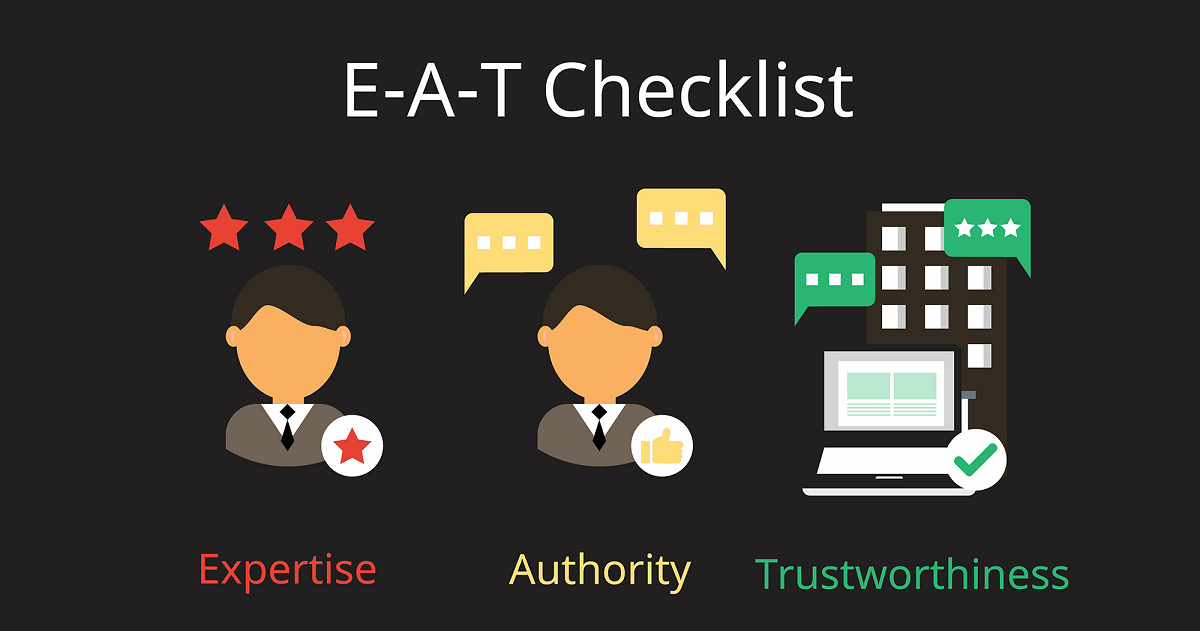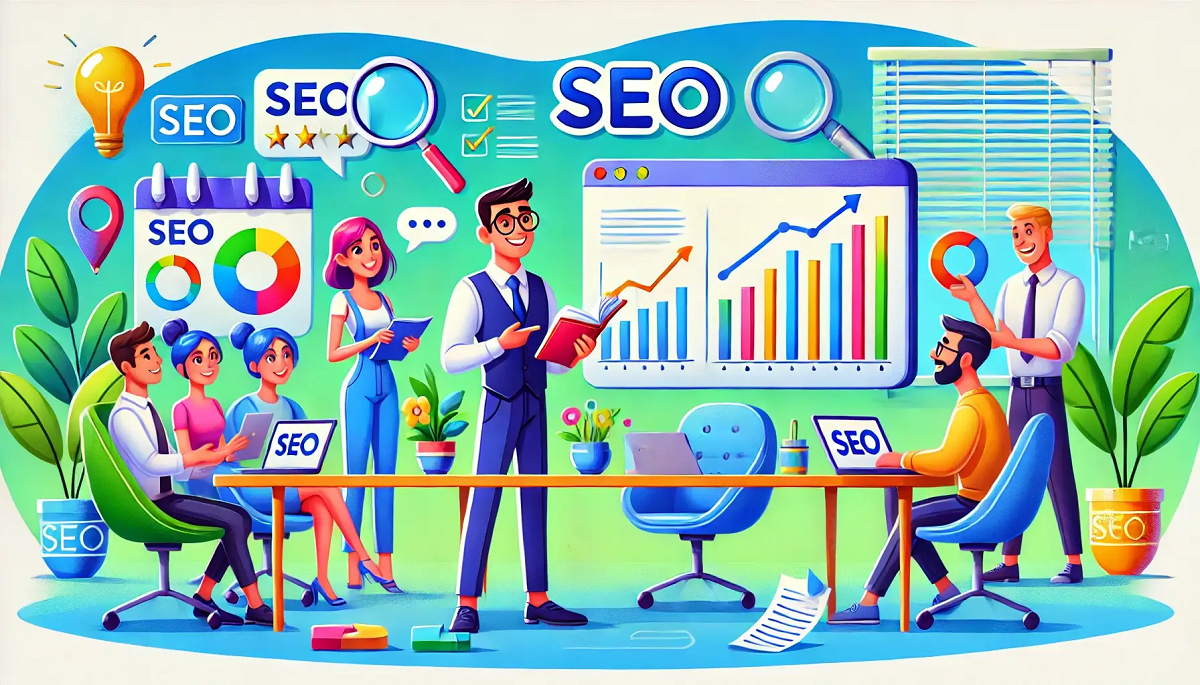BLOG
The Evolution Of SEO: Past, Present, And Future

In the ever-evolving landscape of digital marketing, few strategies have stood the test of time and technological advancement as robustly as Search Engine Optimization (SEO). From its humble beginnings in the early days of the internet to its current sophisticated practices, SEO has transformed the way businesses approach online visibility and customer engagement. As we stand on the cusp of a new era in digital marketing, it's crucial to understand the evolution of SEO—how it has shaped the online world we know today and what lies ahead in its future.
In the past, SEO was largely focused on gaming search engine algorithms through tactics like keyword stuffing and link farming. However, search engines quickly caught on and began updating their algorithms to prioritize quality content and user experience. This shift ushered in the era of modern SEO, where factors like mobile-friendliness, page speed, and semantic search became critical for ranking success.
Looking ahead, the future of SEO is poised to be even more dynamic. With advancements in artificial intelligence, voice search, and machine learning, SEO strategies will need to adapt to new technologies and user behaviors. User intent and context will play an increasingly significant role, requiring businesses to focus on delivering personalized, relevant content to their audiences.
In this blog post, we'll take a deep dive into the evolution of SEO, exploring its past, present, and future to help you stay ahead in the ever-changing world of digital marketing.
Understanding SEO
Understanding SEO (Search Engine Optimization) is crucial in today's digital landscape, where online visibility can make or break a business. SEO refers to the process of optimizing a website to rank higher in search engine results pages (SERPs) and attract more organic (non-paid) traffic. It involves a combination of technical, creative, and analytical elements aimed at improving website visibility, driving traffic, and ultimately, achieving higher conversion rates.
At its core, SEO is about understanding how search engines work and what users are searching for. Search engines like Google use complex algorithms to determine the relevance and authority of web pages, ranking them based on factors such as keyword usage, content quality, user experience, and backlink profile. By understanding these factors and optimizing your website accordingly, you can improve its chances of ranking higher in search results for relevant queries.
SEO is not a one-time task but an ongoing process that requires continuous monitoring, analysis, and adjustment. As search engine algorithms evolve and user behaviors change, SEO strategies must also adapt to remain effective. This involves staying updated with the latest trends and best practices in SEO, as well as analyzing data and performance metrics to identify areas for improvement.
The Past: Early Days Of SEO
The early days of SEO refer to the period when search engines first emerged and website owners began optimizing their content to improve their visibility in search engine results pages (SERPs). During this time, SEO practices were relatively simple compared to today's standards. Here are some key aspects of the early days of SEO:
- Emergence of Search Engines: In the early 1990s, the internet was rapidly expanding, leading to the need for tools to organize and categorize information. Search engines like Archie, which indexed FTP archives to help users find files, and Gopher, which organized information on the internet into a hierarchical structure, were among the earliest examples. However, it was not until the launch of Yahoo! in 1994 that a more user-friendly and comprehensive search engine became widely popular.
- Basic SEO Techniques: As search engines evolved, website owners began to realize the importance of appearing prominently in search results. Early SEO techniques were relatively simple compared to today's standards. One common practice was keyword stuffing, where website owners would excessively repeat keywords on a page to manipulate search engine rankings. Meta tags, particularly the meta keywords tag, were also heavily relied upon for SEO. Additionally, some webmasters used tactics like hidden text, where they would hide keywords by making them the same color as the background, making them invisible to users but readable by search engines.
- Importance of Links: Links have always been a fundamental part of SEO. In the early days, search engines viewed links as a vote of confidence in a website's authority and relevance. As a result, webmasters started engaging in link schemes, such as link exchanges and link farms, to artificially inflate their website's link popularity. These practices eventually led to the devaluation of such links by search engines.
- Algorithm Updates: Search engines continuously refined their algorithms to deliver more relevant and high-quality search results. Google, in particular, revolutionized the search engine landscape with the introduction of its PageRank algorithm, which analyzed the quality and quantity of links pointing to a webpage to determine its relevance and authority. Subsequent algorithm updates, such as Panda, Penguin, and Hummingbird, aimed to penalize websites that engaged in keyword stuffing, manipulative link building, and other spammy practices.
- Growth of SEO Industry: As search engines became more sophisticated, the demand for SEO services grew. SEO professionals began offering a range of services, including keyword research, on-page optimization, link building, and SEO audits, to help website owners improve their rankings. The SEO industry also saw the emergence of conferences, forums, and publications dedicated to discussing SEO best practices and industry trends.
Overall, the early days of SEO were characterized by experimentation and a focus on manipulating search engine algorithms. While some of the tactics used during this time are now considered spammy or unethical, they laid the foundation for the modern SEO practices we use today.
The Present: Modern SEO Practices
In the context of modern SEO practices, several key strategies and tactics have emerged as essential for optimizing websites to rank well in search engine results. Here's a breakdown of some of these practices:
- Quality Content: Creating high-quality, relevant, and valuable content for users is paramount. Content should be well-written, engaging, and fulfill the user's search intent.
- User Experience (UX): Providing a seamless and intuitive user experience is crucial. This includes mobile responsiveness, fast loading times, easy navigation, and secure browsing (HTTPS).
- Technical SEO: Optimizing technical aspects of a website, such as crawlability, indexability, site structure, and schema markup, to ensure search engines can properly understand and index the content.
- On-Page SEO: Optimizing individual web pages to rank higher and earn more relevant traffic in search engines. This includes optimizing meta tags, headings, images, and URLs, as well as improving internal linking and content formatting.
- Off-Page SEO: Building a strong backlink profile from reputable and relevant websites is still important. However, the focus has shifted towards earning quality links through content marketing, digital PR, and influencer outreach, rather than buying or exchanging links.
- Mobile Optimization: With the increasing use of mobile devices, websites must be optimized for mobile users. This includes responsive design, fast loading times, and mobile-friendly content.
- Voice Search Optimization: As more people use voice search, optimizing for natural language queries and long-tail keywords is becoming important. This includes creating FAQ pages, optimizing for local search, and using structured data markup.
- Local SEO: For businesses targeting local customers, optimizing for local search is crucial. This includes claiming and optimizing Google My Business listings, building local citations, and earning positive reviews.
- Analytics and Data Analysis: Using tools like Google Analytics and Google Search Console to track and analyze website performance, user behavior, and keyword rankings. This data helps in making informed decisions and optimizing strategies.
- Adaptation to Algorithm Updates: Search engine algorithms are constantly evolving, so staying updated with algorithm changes and adapting SEO strategies accordingly is essential for long-term success.
These are just a few of the key modern SEO practices that website owners and marketers should focus on to improve their search engine visibility and rankings.
The Future: Trends And Predictions
- AI and Machine Learning: Discuss how AI and machine learning algorithms are likely to play a more significant role in SEO. Search engines will become smarter at understanding user intent, context, and content relevance, leading to more personalized search results.
- Voice Search Optimization: Explore the growing impact of voice search on SEO. As more people use voice assistants like Siri, Alexa, and Google Assistant, optimizing content for voice search queries will become crucial. This includes focusing on long-tail keywords and natural language.
- Mobile-First Indexing: Explain how mobile-first indexing, where Google predominantly uses the mobile version of a site for indexing and ranking, will continue to be a priority. Websites that are not mobile-friendly may see a drop in rankings.
- Structured Data and Rich Snippets: Highlight the importance of structured data in SEO. Rich snippets, such as featured snippets, knowledge panels, and FAQ snippets, are likely to become more prominent in search results, providing opportunities for increased visibility.
- User Experience (UX): Emphasize the growing significance of user experience in SEO. Factors like site speed, mobile responsiveness, intuitive navigation, and engaging content will continue to be critical for ranking well in search results.
- E-A-T and Expertise: Discuss the importance of expertise, authority, and trustworthiness (E-A-T) in SEO. Google's algorithms increasingly prioritize content from authoritative sources, so building credibility and expertise in your niche will be crucial.
- Local SEO and Google My Business: Explore the evolving landscape of local SEO, especially with the rise of "near me" searches. Optimizing for local search, including creating and optimizing Google My Business listings, will be essential for businesses targeting local customers.
- Video and Visual Search Optimization: Touch on the growing importance of video content and visual search. Optimizing videos for search engines and using visual elements like images and infographics strategically can enhance SEO efforts.
- Search Intent and Semantic SEO: Explain how understanding and targeting search intent will become even more critical. Semantic SEO, which focuses on the context and meaning of words, will be key to creating relevant content that matches user intent.
- Privacy and Security: Mention the increasing emphasis on privacy and security in SEO. Secure websites (HTTPS), data protection measures, and compliance with privacy regulations like GDPR and CCPA will be essential for SEO success.
- Sustainability and Green SEO: Consider the emerging trend of sustainable SEO practices, such as reducing carbon footprint, using eco-friendly hosting, and promoting environmentally friendly products and services.
In conclusion, the future of SEO is poised for exciting developments, driven by advancements in technology and changes in user behavior. AI and machine learning will play a more significant role in understanding and delivering relevant search results, while voice search optimization and mobile-first indexing will continue to shape SEO strategies. User experience, E-A-T, and local SEO will remain crucial, emphasizing the importance of creating high-quality, authoritative, and locally relevant content.
As search engines become more sophisticated, SEO professionals and businesses must adapt their strategies to stay ahead of the curve. By focusing on providing valuable, user-centric content, optimizing for new search trends, and prioritizing technical SEO, brands can enhance their visibility and reach their target audiences effectively.
To ensure your website is prepared for the future of SEO, take action today:
- Audit Your Website: Conduct a comprehensive SEO audit to identify areas for improvement, including technical issues, content quality, and mobile optimization.
- Optimize for Voice Search: Research and optimize your content for voice search queries to capture this growing segment of search traffic.
- Focus on User Experience: Enhance your website's user experience by improving page speed, mobile responsiveness, and overall usability.
- Create High-Quality Content: Develop authoritative, engaging content that meets user needs and demonstrates expertise in your industry.
- Stay Informed: Stay updated with the latest SEO trends and algorithm changes to adapt your strategy accordingly.
By implementing these strategies, you can position your website for success in the evolving landscape of SEO and drive sustainable organic traffic to your site.











